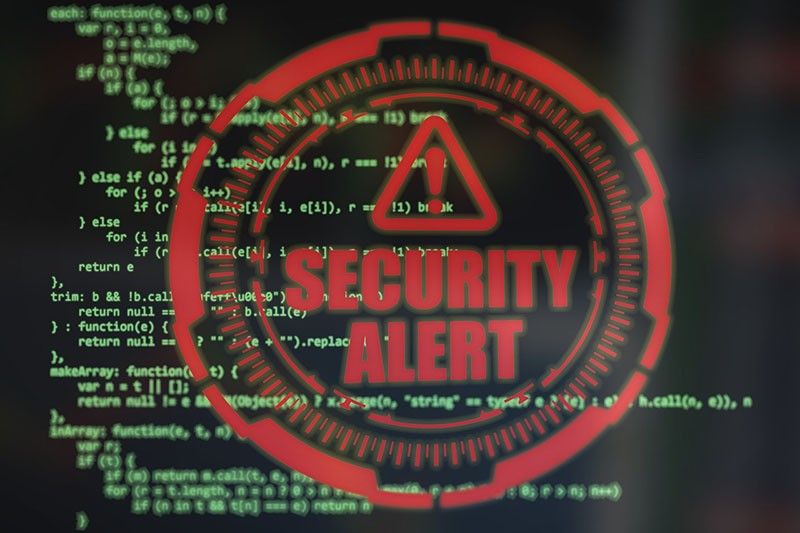Urgency to ramp up our cyber defense

In a hybrid forum held 25 October, cyber defense specialists and geopolitical experts underscored the need for the Philippines to take a more strategic stance in the battle against rising cyber criminality.
The experts and specialists from the government, academe and civil society groups urged the government to close ranks with the private sector and collaborate with its state allies in fighting cybercrimes.
From that forum, hosted by the Stratbase Albert del Rosario Institute (ADRI) in partnership with the US Embassy in the Philippines, the key message that the experts emphatically pointed out is that a safe cyberspace is vital to digital readiness and national development in this digitally connected world.
A safe cyberspace is vital to digital readiness as consumers now rely more on online connectivity for their daily transactions.
The Central Bank of the Philippines has reported that digital payments and transactions surged by over 5,000% during the pandemic as people have opted to do business using e-commerce and e-payment platforms instead of face-to-face transactions.
Unfortunately, the exponential rise of online activities including financial transactions has created a borderless hunting ground for criminals. They prey on consumers, especially those who have only begun to learn their way around the Internet.
Data from the Philippine National Police Anti-Cybercrime Group show that there were 869 online scams recorded from March to September 2020, a 37% increase from the 633 incidents recorded in the same period in 2019.
Independent reports have noted improving internet speeds in the country over the last few years. However, Digital Readiness does not end with fast internet speeds and digital infrastructure build-up.
It is equally important to have a secure digital space where online users and consumers are safe from scams such as phishing, smishing, and other schemes that target digital citizens especially those that are credit card holders and e-wallet or e-banking users.
In fact, the Bangko Sentral ng Pilipinas reported receiving 42,000 complaints – amounting to P540 million that were related to online transactions in 2020-2021.
In the Stratbase institute forum, United States Cybersecurity and Infrastructure Security Agency Program Manager Paolo Pascetta noted that indeed cybercrime is exploding. Digital transformation, as part of another industrial revolution that we are currently undergoing, is expected to create an estimated hundred trillion of additional value to the world economy by 2025, based on projections of several studies.
In light of all these, the insights of the cyber security experts is timely and relevant. One of the speakers was a former director of the United States National Security Agency’s Threats Operations Center, Dan Ennis. He rightly stressed that government and private sector partnership is key in fighting cybercrimes.
More importantly, Ennis offered a package of initiatives that he calls solutions to cyber criminality, to wit:
1. The conduct of information dissemination programs such as raising awareness on how to mitigate cybersecurity risks and threats.
2. The continuing education of citizens on the proper and safe use of online platforms and resources via cyber-related trainings and webinars.
3. The provision of practical tips to keep individuals safe during online platforms and keep private online data secured.
4. The implementation of the SIM Card Registration Law requiring mobile phone users to register their SIM cards to curb text scam operations.
Dovetailing with all these was the call of Pascetta who pointed out that US relationship with its treaty allies in the region, including the Philippines, is of paramount importance to the US in confronting threats from state and non-state actors.
Specifically, Pascetta shared that there are plans to hold training sessions on cyber hygiene and cyber work in Manila in early 2023.
For his part, Department of Information and Communication Technology (DICT) Undersecretary for Special Concerns Paul Joseph Mercado was emphatic about the country’s cybersecurity state.
“The first step in solving a problem is to acknowledge that it exists. DICT acknowledges that the cybersecurity issue is a global concern. Through our information dissemination programs, we aim to raise awareness on how to mitigate cybersecurity risks and threats as more and more people rely on ICT,” he said.
“To educate our citizens regarding the proper and safe use of online platforms and resources, our Cybersecurity Bureau is continuously conducting cyber-related training and webinars in order to equip Filipinos with the necessary information and skills to be responsible and safe digital users,” he added.
In his statement during the forum, Prof. Dindo Manhit, ADRI president, said the threat of cyber-attacks against the government is a serious security concern and should be treated as a matter of national security for which policies and initiatives must be crafted and put into action.
“As the country builds its cyber capabilities against these vulnerabilities, the Institute believes that the need for cybersecurity is an opportunity for cooperation among states in the region. Only by creating a strong and credible cyber defense posture will the Philippines and the Indo-Pacific be able to achieve a secure and trustworthy digital community,” Manhit said.
Directly related to this, De La Salle University Assistant Professor of International Studies Francis Domingo, urged the government to strengthen the National Security Cybersecurity Plan by including diplomacy and the Department of Foreign Affairs in the framework.
All things considered, the government with its various agencies has to get its act together to build a bulwark and a capable cyber defense force to protect our people from this explosion of daily cyber-attacks that threatens to destroy the high level of trust needed for a digital ecosystem to sustainably prosper.
This means building on the support that could the private sector is so willing and ready to offer and in the geopolitical sphere, leverage on our like-minded allies in the international community against state sponsored or private actors now wreaking havoc on a global scale.
Louie C. Montemar is a fellow for education at the think tank Stratbase ADR Institute and professor of Sociology and Political Science at the PUP.
- Latest
























